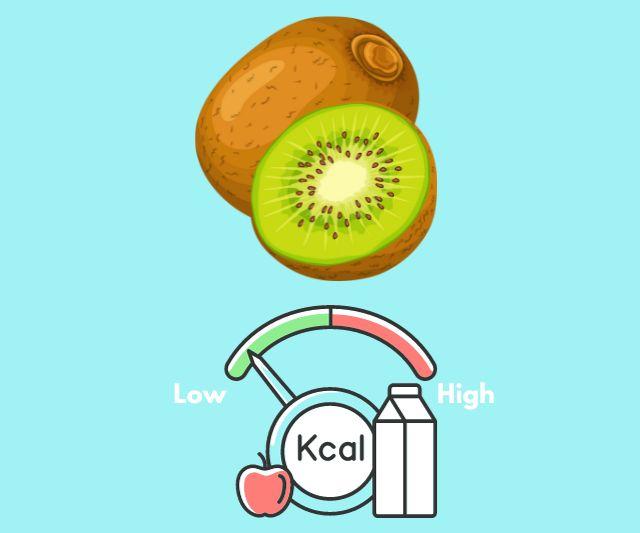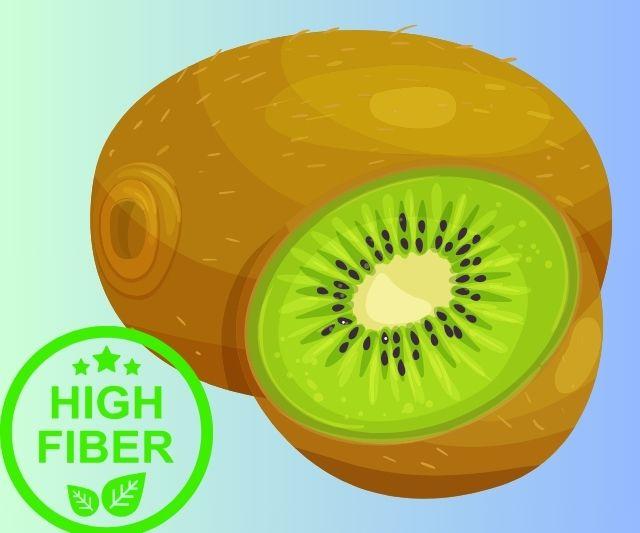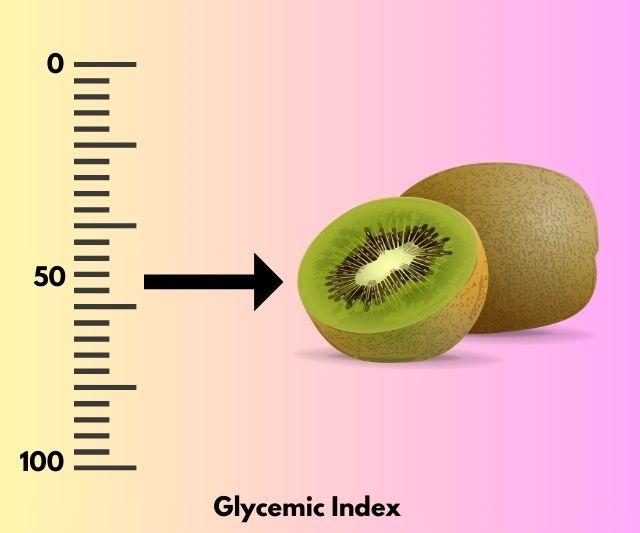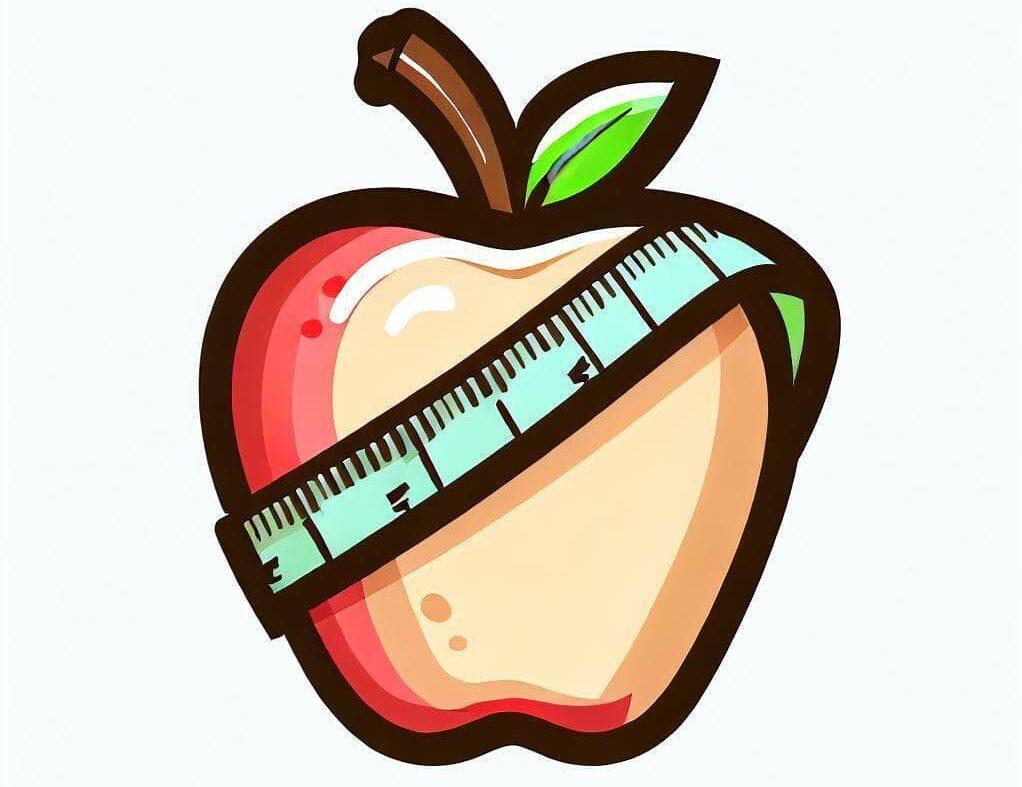Is Kiwi Good For Weight Loss?
This post may contain affiliate links which means I may receive a commission for purchases made through links at no extra cost to you. See my disclosure policy for more information.

Yes, kiwi is good for weight loss because it only has 64 calories per 100 g.
This is helpful for weight loss since you need to be eating foods that are low in calories so that you don’t go overboard on your daily caloric intake.
As a nutritionist, I understand the importance of fruits like kiwi. For many of you, it may be your favorite fruit to have every now and then.
And when you are trying to lose weight, it is best to check if what you are eating is not hindering your weight loss efforts.
To help you out with this, in this article, I’ll do a deep dive on kiwi, its benefits, downsides, and some tips for you to add to your weight loss diet without derailing your efforts.
Nutritional Value
As per the USDA, 100 g of raw kiwi contains the following nutrients:
Serving Size: 100 g
- Calories: 64
- Protein: 1 g
- Carbs: 14 g
- Sugar: 9 g
- Fiber: 3 g
- Fat: 0.4 g
Potential Benefits of Kiwi for Weight Loss
Low in Calories

Calories are like fuel for our bodies. We use them for energy, but if we consume more than we need, the excess gets stored as fat.
Especially for weight loss, you have to eat fewer calories than your body burns.
This is where low-calorie fruits such as kiwi help you stay on track. As you saw above 100 grams of kiwi only has 64 calories, which is quite low compared to many other snacks or fruits.
So, when you choose to snack on a kiwi, you’re getting a sweet treat without a lot of calories.
This makes it easier to stay within your daily calorie budget, which is crucial for losing weight.
High Water Content

Kiwi is about 83% water, which is quite a lot.
When you eat foods with a lot of water, they fill up your stomach more and make you feel less hungry.
This can help you when it’s time to eat your main meal. So let’s say in between lunch and dinner, you have some cravings.
Instead of grabbing a pack of chips or a protein bar. You can cut yourself some kiwi.
You not only get its low-calorie goodness but you also get a lot of water with it which can make you feel less hungry by the time you have to eat your meal.
Rich in Fiber

Fiber is a type of carbohydrate that your body can’t digest. Kiwi is packed with fiber.
When you eat fiber-rich foods, the fiber moves through your digestive system and absorbs water along the way.
This makes the fiber expand, which helps you feel full. Think of it like a sponge that swells up when it gets wet.
This full feeling means you’re less likely to snack unnecessarily, which can help with weight control.
Additionally, fiber helps keep your digestive system running smoothly, preventing constipation and supporting overall gut health, which is important for maintaining a healthy weight.
Low Glycemic Index

The glycemic index (GI) is a way of ranking foods on a scale of 1 – 100 based on how they affect blood sugar levels.
Foods with a high GI make your blood sugar spike quickly, which can lead to increased hunger and cravings soon after eating.
Kiwi has a low GI of 50, meaning it causes a slower rise in blood sugar. This is good for weight loss because it helps you feel satisfied for longer after eating.
When your blood sugar levels rise slowly and steadily, it helps control your appetite and prevents the kind of cravings that can lead to overeating.
Potential Downsides of Kiwi For Weight Loss
Risk of Overconsumption

Kiwi is sweet and low in calories, which might make you think you can eat as much as you want without any consequences. However, this isn’t entirely true, especially when it comes to weight loss.
Because even though kiwi is low in calories, these calories can still add up.
Imagine you’re on a budget, and you think buying lots of small, cheap items won’t affect your wallet much. But if you keep buying them, eventually, the cost adds up.
It’s the same with calories. Eating too many kiwis (or any food, for that matter) can lead to consuming more calories than your body needs.
When your body has excess calories, it stores them as fat. So, overeating kiwi, despite its low-calorie nature, can still contribute to weight gain or hinder weight loss.
Not Good in Juice Form

When you turn kiwi into juice, you’re basically removing its fiber and keeping mostly the sugars and water. This is not ideal for weight loss.
First, fiber is a big part of what makes kiwi great for weight loss. It helps you feel full and satisfied, and it slows down the absorption of sugar into your bloodstream.
When you remove the fiber by juicing the kiwi, you lose these benefits. You end up with a drink that can quickly raise your blood sugar levels.
When your blood sugar spikes quickly (which can happen after drinking fruit juice), your body responds by releasing insulin to bring those sugar levels down.
Also, your body uses the hormone insulin to handle sugar, and when insulin levels are high, your body stores more fat, especially if you’re eating more calories than you burn.
Tips for Incorporating Kiwi in a Weight Loss Diet
Eat Raw Kiwi
This is as straightforward as it gets. Just like you might eat an apple or a banana, you can eat a kiwi. Peel it and enjoy the juicy, tangy flesh.
Eating kiwi raw ensures you get all its nutrients – vitamin C, vitamin K, fiber, and antioxidants – without any extra calories from added sugars or dressings.
This is beneficial for weight loss because you’re consuming a snack that’s low in calories but high in nutrients and can satisfy your sweet cravings, which might otherwise lead you to higher-calorie snacks.
Make a Kiwi-Infused Water
Drinking plenty of water is crucial for weight loss, and when you add kiwi to your water routine, it’s even better.
Eating a kiwi and then drinking a glass of water can help fill your stomach with a low-calorie, nutritious snack, making you less likely to overeat.
The water helps hydrate you, which is important because sometimes our bodies confuse thirst with hunger.
By staying well-hydrated and having a kiwi, you’re tackling both hydration and hunger, which can be a great strategy for weight loss.
Put it in Smoothies
Adding kiwi to your smoothies is a great way to increase their nutritional value.
Smoothies are a popular choice for those on a weight loss journey because they’re quick to make and can be filled with a variety of healthy ingredients.
Kiwi adds natural sweetness, vitamins, and fiber to your smoothie, making it more filling and nutritious without the need for added sugars.
This can help in controlling calorie intake while still enjoying a delicious and satisfying drink.
Have It as a Snack
Snacking on kiwi instead of high-calorie snacks like chips or cookies can be a game-changer for weight loss.
Kiwi is sweet and satisfying, and it’s much lower in calories and higher in nutrients compared to many other snack options.
Pairing it with yogurt can be an excellent choice, as the protein in yogurt can help keep you full for a longer time, reducing the likelihood of overeating.
Alternatives to Kiwi for Weight Loss
Watermelon
A standout feature of watermelon in weight loss is its exceptionally high water content, which makes it incredibly hydrating and filling while being low in calories.
This can help reduce overall calorie intake by creating a sense of fullness.
Additionally, watermelon contains citrulline, an amino acid that can enhance blood flow and potentially improve exercise performance, indirectly aiding in weight loss efforts.
Also Read: Is Watermelon Good for Weight Loss?
Oranges
Oranges are a powerhouse of fiber, which is key for weight loss.
The fiber in oranges slows down digestion and sugar absorption, leading to prolonged feelings of fullness and reduced hunger.
This can help in managing calorie intake more effectively.
Oranges also provide a natural energy boost due to their simple carbohydrates, making them an ideal snack before high-intensity workouts.
Also Read: Are Oranges Good for Weight Loss?
Grapes
Grapes are beneficial for weight loss due to their ability to satisfy sweet cravings with natural sugars, offering a healthier alternative to high-calorie sweet snacks.
They also support the concept of “volume eating,” where their water content adds volume without many calories, helping in feeling fuller.
Additionally, the act of eating grapes can be a mindful practice, aiding in recognizing satiety signals more effectively.
Also Read: Are Grapes Good for Weight Loss?
Strawberries
Strawberries are low in calories and sugar, making them an excellent choice for a weight-loss diet.
Their high fiber content contributes to a feeling of fullness, reducing the likelihood of overeating.
Strawberries’ lower sugar content, compared to other fruits, helps in avoiding rapid spikes in blood sugar levels, which can lead to cravings and overeating.
They are versatile and can be easily added to various dishes, enhancing flavor without adding significant calories.
Also Read: Are Strawberries Good for Weight Loss?
Conclusion
When you are trying to lose weight, it is better you opt for foods that are low in calories, high in fiber, and are unprocessed.
Kiwi ticks all those boxes. So you can eat in for weight loss. But keep in mind, just eating low-calorie foods is not going to get you closer to your weight loss goals.
You still need to exercise, get an adequate amount of sleep every night, and manage your stress levels.
FAQ
How to use kiwi fruit for weight loss?
Include kiwi in your diet as a low-calorie snack or part of a balanced meal to reduce overall calorie intake.
How to eat kiwi for weight loss?
Eat kiwis raw, add them to salads, or use them as a topping for yogurt to increase fiber intake and promote fullness.
Does Kiwi burn belly fat?
No single food burns belly fat, but kiwi can be part of a diet that contributes to overall fat loss.
Does kiwi help you lose weight?
Yes, kiwi can aid weight loss due to its fiber content and low energy density.
Are kiwis fattening?
No, kiwis are not fattening when eaten in moderation as part of a balanced diet.
This post may contain affiliate links which means I may receive a commission for purchases made through links at no extra cost to you. See my disclosure policy for more information.
Rahul is a professional nutritionist certified by the International Sports Sciences Association (ISSA) and a personal trainer certified through the American Council of Exercise (ACE). He has a special interest in the science of nutrition and how it can impact the body.
